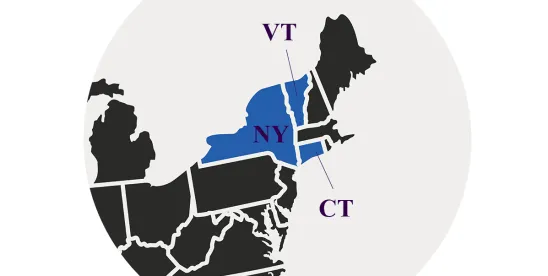On August 6, 2025, the U.S. Court of Appeals for the Second Circuit issued an opinion allowing a case challenging drug pricing changes to proceed. The case, an antitrust action brought by health centers against certain insulin manufacturers, arises from alleged anticompetitive actions taken in connection with the federal 340B Drug Discount Program. Specifically, the lawsuit involves Mosaic Health, Inc. and Central Virginia Health Services, Inc., which operate a total of forty 340B-eligible health centers, (collectively, “the Health Centers”), and four insulin manufacturers: Sanofi-Aventis, Eli Lilly, Novo Nordisk, and AstraZeneca Pharmaceuticals (collectively, “the Drug Makers”). In 2021, the Health Centers filed suit against the Drug Makers alleging per se violations of Section One of the Sherman Act, a federal law that prohibits unreasonable restraints of trade, including price-fixing, as well as 26 individual state antitrust laws, after the four Drug Makers announced similar restrictions related to the 340B Drug Discount Program on retail pharmacies in quick succession. In their First Amended Complaint, the Health Centers claimed that instead of competing, the Drug Makers “worked together to boost their profits by coordinating to retract a long-standing discount for safety-net hospitals and clinics” to the detriment of competition and consumers.
Background on the 340B Program
Under the 340B Drug Discount Program (codified under Section 340B of the Public Health Service Act), drug manufacturers sell covered outpatient drugs to 340B Covered Entities, including safety-net providers like the Health Centers, at a discount, which may be dispensed by on-site dispensing pharmacies owned and operated by the 340B Covered Entities, or by retail “contract pharmacies” subject to a written agreement between the parties. Contract pharmacy arrangements have been the subject of prolonged dispute between drug manufacturers and 340B Covered Entities. In 2020, within four months of one another, each of the four Drug Makers announced policies restricting the sale of covered outpatient drugs, including insulin, through contract pharmacies under the 340B Drug Discount Program, which the Health Centers allege effectively cuts off their ability to purchase 340B-discounted insulin for sale at contract pharmacies. (There were carveouts in some Drug Makers’ policies for 340B Covered Entities without an on-site dispensing pharmacy.)
Case Procedure and Decisions
On February 1, 2024, the U.S. District Court for the Western District of New York denied the Health Centers’ request to file a Second Amended Complaint, concluding that the Health Centers did not show sufficient evidence that the Drug Makers colluded with one another. The Health Centers quickly appealed the decision to the Second Circuit. At oral argument, the parties’ positions appeared to hinge on whether the similarly timed contract pharmacy restrictions undertaken by the Drug Makers were independent actions instead of a conspiracy in violation of Section One of the Sherman Act. If the court determines that there was a Section One violation, the Drug Makers could face treble damages in the lawsuit, as well as serious sanctions from various government agencies, including potential exclusion from federal programs.
The Health Centers argued that, given the similar timing and effect of their announcements, the Drug Makers, who make up essentially the entire market of certain insulin products, had conspired in ending 340B discounts for 340B drugs dispensed through contract pharmacies. In its reply brief to the appellate court, the Drug Makers responded that the Health Centers did not put forth enough evidence to plausibly show collusion – so called “plus factors.”
The Second Circuit’s decision vacated the lower court’s dismissal and directed the lower court to permit the Health Centers to file their Second Amended Complaint. The Second Circuit concluded that the Health Centers alleged sufficient facts to support a “plausible inference of a horizonal price fixing conspiracy” under the Sherman Act, and to warrant re-examination by the lower court of the state law claims. The Second Circuit stated that through their contract pharmacy restrictions, the Drug Makers “earned higher profits[] and avoided competition from their direct competitors” over the drugs at issue, referring to data from the Health Centers’ First Amended Complaint showing a steep drop-off in sales of 340B-discounted drugs dispensed at contract pharmacies at the time the announcements were made.
Implications for the 340B Program
Although the Second Circuit decision only allows Plaintiffs to file their Second Amended Complaint, the ultimate outcome of the case may have broad-ranging implications for how 340B Covered Entities can challenge 340B Drug Pricing Program disputes. 340B Covered Entities currently have few avenues for recourse or enforcement of 340B drug pricing requirements. The U.S. Supreme Court decision in Astra USA, Inc. v. Santa Clara County, 563 U.S. 110 (2011), held that 340B Covered Entities do not have a private right of action to challenge overcharge disputes under the 340B Drug Pricing Program statute, enforcement of which is within the purview of the federal government. Instead, under the 340B Drug Pricing Program statute, manufacturers and 340B Covered Entities are expected to address pricing disputes by engaging in an administrative dispute resolution process in good faith in accordance with final regulations issued in 2024. Under those regulations, 340B Covered Entities may only bring claims of overcharges by a manufacturer—no other claims by 340B Covered Entities are permitted.
By allowing this case to move forward, the Second Circuit has cleared one obstacle for Covered Entities to challenge Drug Makers’ contract pharmacy restrictions through antitrust claims rather than alleging direct violations of the 340B Program. The Second Circuit’s opinion makes a distinction between the two avenues for relief, noting that the resolution of the antitrust claim in the suit does not necessitate determining whether or not the Drug Makers violated the requirements of the 340B Drug Pricing Program.



 />i
/>i
